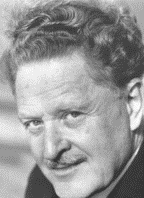Translated from the Turkish by Neil P. Doherty
Translations dedicated to Trevor Joyce
Weeping Willow
The water was flowing the willow trees reflected in its mirror: The weeping willows washing their hair in the water! Striking the willows with their burning, bare swords the red horsemen run towards the setting sun! Suddenly like a bird like a bird hit in the wing a wounded horseman falls from his horse! Yet he does not shout, Nor call back those who go ahead, he just stares with streaming eyes at the shining horseshoes growing more distant! A shame! A shame that never again will he lie on the lathered necks of galloping horses, never again will he wave his sword at the white armies! Bit by bit the horseshoe sounds fade away, And the horsemen disappear into where the sun sets!
Horsemen horsemen red horsemen,
their horses wingéd in wind!
their horses wingéd in...
their horses wingéd...
their horses...
horse...
Like wind wingéd horseman life has passed! The sound of the flowing water fades and shadows are shadowed and colours wiped away. A black cover slips over his blue eyes, the weeping willows lean down into his blond hair!
Do not weep weeping willow do not, in the mirror of the black water do not bow and scrape! do not! do not weep!” 1928
The Caspian Sea
From horizon to horizon Run armies and armies of purple foaming waves, The Caspian Sea speaks the wild language of the wind’s tongue Speaks cascades speaks. And someone utters: “Chort vazmi!” Like a dead lake the Caspian Sea! An infinite, aimless expanse of salty water! On the Caspian Sea fare friends a…h..! On the Caspian Sea fare enemies!
The wave is a mountain the boat a deer! The wave is a well the boat a bucket! The boat rises the boat falls, Off the back of a stumbling horse The boat rises on the hoofs of a rearing horse
The Turkmen boatman Sits cross-legged at the wheel, A huge black kalpak on his head Yet this is no kalpak: He has torn open the stomach of woolly sheep and wrapped it round his head The fleece down in his eyes!
The boat rises the boat falls
And the boatman Like a Turkmen Buddha statue Sits cross-legged at the wheel Ah but do not think he bows and scrapes to the Caspian Sea With the stony tranquillity of a Buddha statue He is sure of himself As he sits there, cross-legged at the wheel.
He does not look at the waters twining round the boat! He does not look at the cracking cleaving waters round the boat!
-But this North-westerly blows hard Look out lest the Caspian fool you Do not let the wind play its tricks -Ah pay no heed, come what may! What may come let the North Westerly lash the waters, He who was born on the Caspian Will find his grave on the Caspian!
The boat rises the boat falls
The boat rise… the boat fall…
Rise… fall… rise… *Chort Vazmi: (Russian) Your soul to the devil. 1928
Translator's Note

Later Nazım’s style and poetics became quieter, though always revolutionary, and he published Şeyh Bedreddin Destanı (1936; “The Epic of Shaykh Bedreddin”), about a 15th-century revolutionary religious leader in Anatolia; and Memleketimden insan manzaraları (“Human Landscapes from My Country”), a 20,000-line epic. Although previously censored, after his death in 1963 his works began to be published and widely read, and he became a poet of the people and a revolutionary hero of the Turkish left. Many consider him to be one of the greatest, if not the greatest, modern Turkish poet.



























0 Comments